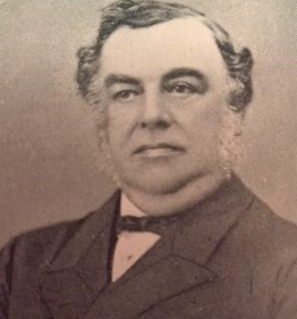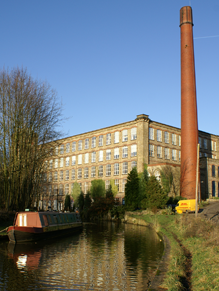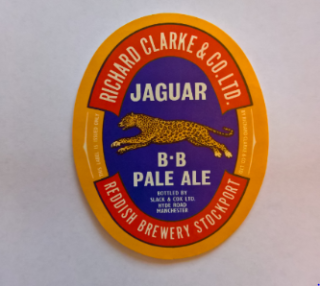Today I would like to tell you the story of my great grandfather, Richard Clarke, who founded a brewery in the 19th century. First of all I would like to describe the world into which Richard was born.

At the end of the 18th Century, England was about to change for ever. The invention of the power loom by James Hargreaves in 1794 sparked the Industrial Revolution. Twenty years later, Samuel Greg built the first large cotton mill on the River Bollin just 10 miles from Macclesfield.
There was a huge migration of farm workers and their families to the new cotton towns which were springing up all over the North West of England.
My family history can be traced back to around 1790. Although they were initially cattle dealers living in Macclesfield, Cheshire, UK, the Clarke family soon became owners of a public house nearby, where they also brewed ale.
Richard Clarke was born into this evolving world in 1835. He was the fifth child of James and Sarah Clarke, who ran a pub called the Cock and Pheasant, midway between Macclesfield and Bollington. Macclesfield was famous for its silk and Bollington was about to join the Industrial Revolution with the construction of two large cotton mills in the 1840s.

It was thirsty work toiling in the cotton mill all day, so the sale of beer was booming. Richard Clarke, the youngest of five children, soon realised that he could make far more money working for himself rather than for his father.
It was on St Patrick's Day in 1849 that Richard, now aged 14, walked to the nearest big town, Stockport, with just three pence in his pocket. The Census of 1851 records him living as a lodger in the home of a wine merchant learning his trade.
By 1857, Richard, having become fed up of working for someone else, took the tenancy of the Sun Inn in Stockport marketplace. He then began brewing his own beer in a small way, delivering the barrels himself on a small handcart. Eventually he could afford to hire a horse and cart.
Slowly his business grew and prospered until he was able to build a large new brewery in 1874. He became an Urban District Councillor and Justice of the Peace before his death in 1899.

The brewery grew steadily under the management of two more generations, eventually comprising an estate of over 60 public houses. It was sold in 1963 to a much larger regional brewery company.
Nowadays brewing has turned full circle with the popularity of small micro breweries.
Writing this piece has made me think that a lot of things which are cyclic. Here are a few examples....
- The stock market is a classic example
- Ladies fashion. There are no truly new ideas., just a new slant on old ones
- Family businesses. Rags to riches and back to rags in three generations.
May be you can think of a few more examples.
Congratulations @macchum! You have completed some achievement on Steemit and have been rewarded with new badge(s) :
Click on any badge to view your own Board of Honor on SteemitBoard.
To support your work, I also upvoted your post!
For more information about SteemitBoard, click here
If you no longer want to receive notifications, reply to this comment with the word
STOPDownvoting a post can decrease pending rewards and make it less visible. Common reasons:
Submit
I am honoured to receive this Steemit award. Many thanks
Downvoting a post can decrease pending rewards and make it less visible. Common reasons:
Submit